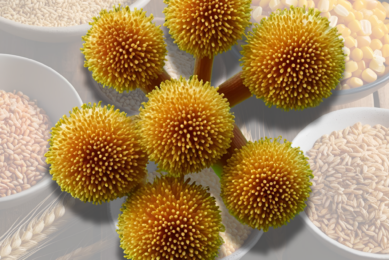Mycotoxins and JHS in beef cattle
Mouldy feed, mycotoxins and Shiga toxin – producing Escherichia coli colonization – associated with Jejunal Hemorrhage Syndrome in beef cattle
Both O157 and non-O157 Shiga toxin – producing Escherichia coli (STECs) cause serious human disease outbreaks through the consumption of contaminated foods. Cattle are considered the main reservoir but it is unclear how STECs affect mature animals.
Neonatal calves are the susceptible age class for STEC infections causing severe enteritis. In an earlier study, we determined that mycotoxins and STECs were part of the disease complex for dairy cattle with Jejunal Hemorrhage Syndrome (JHS).
For STECs to play a role in the development of JHS, the researchers hypothesized that STEC colonization should also be evident in beef cattle with JHS.
Aggressive medical and surgical therapies are effective for JHS, but rely on early recognition of clinical signs for optimal outcomes suggesting that novel approaches must be developed for managing this disease.
The main objective of this study was to confirm that mouldy feeds, mycotoxins and STEC colonization were associated with the development of JHS in beef cattle.
Results
Beef cattle developed JHS after consuming feed containing several types of mycotoxigenic fungi including Fusarium poae, F. verticillioides, F.sporotrichioides, Penicillium roqueforti and Aspergillus fumigatus.
Mixtures of STECs colonized the mucosa in the hemorrhaged tissues of the cattle and no other pathogen was identified.
The STECs expressed Stx1 and Stx2, but more significantly, Stxs were also present in the blood collected from the lumen of the hemorrhaged jejunum.
Feed extracts containing mycotoxins were toxic to enterocytes and 0.1% of a prebiotic, Celmanax, removed the cytotoxicity in vitro.
The inclusion of a prebiotic in the care program for symptomatic beef calves was associated with 69% recovery.
Conclusions
The current study confirmed that STECs and mycotoxins are part of the disease complex for JHS in beef cattle. Mycotoxigenic fungi are only relevant in that they produce the mycotoxins deposited in the feed.
A prebiotic, Celmanax, acted as a mycotoxin binder in vitro and interfered with the progression of disease.
Author: Danica Baines, Stephanie Erb, Kelly Turkington, Gretchen Kuldau, Jean Juba, Luke Masson, Alberto Mazza, Ray Roberts











